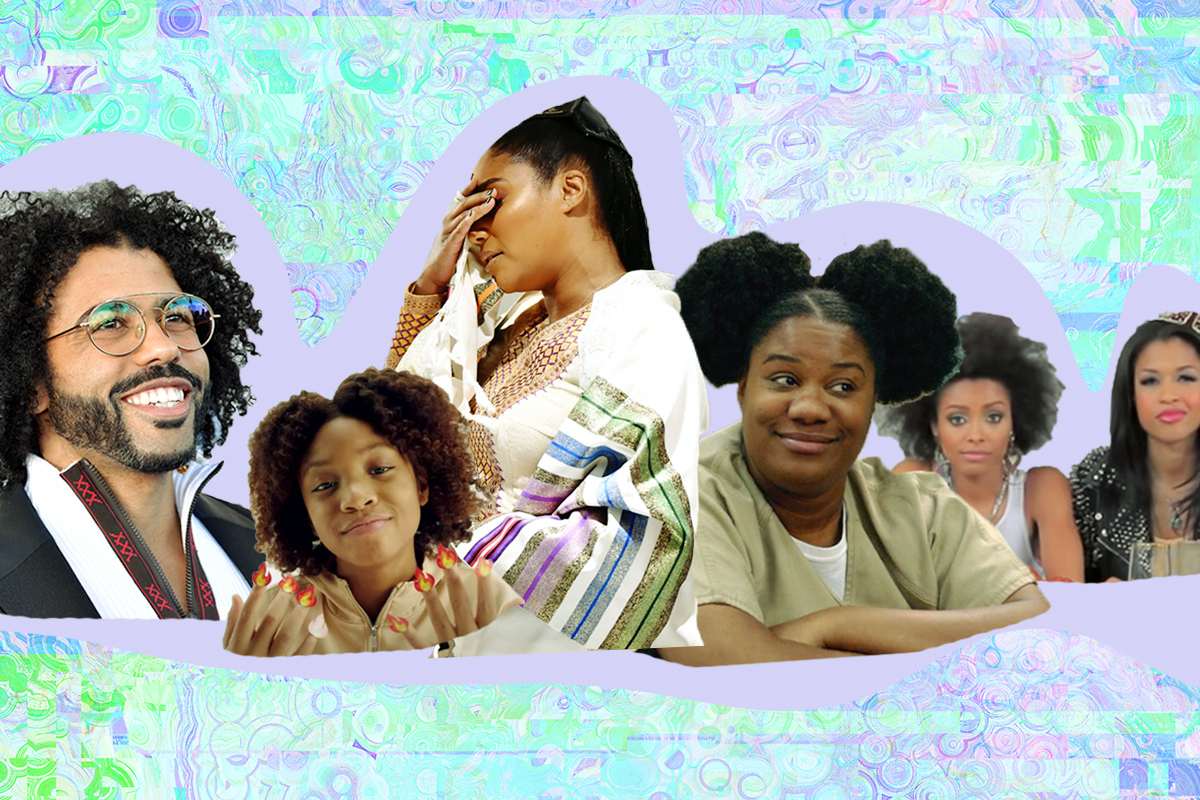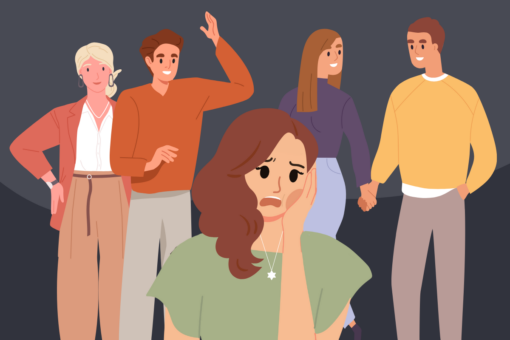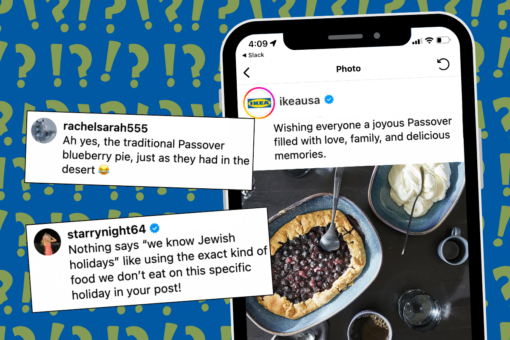When Kali Hawk and Kat Graham released “Black and Jewish,” a music video parody of the 2010 Wiz Khalifa hit “Black and Yellow,” I felt seen. Sure, the song perpetuated stereotypes about Black people, Jewish people, and people who belong to both groups, but at least there was an example of Black femmes in pop culture who were proud of their Black and Jewish heritage. Finally, I had an anthem, any anthem, that captured the experiences of Black and Jewish people and delivered them to viewers and listeners via a danceable track complete with a catchy hook that spoke to a part of my identity I had yet to see represented in the media.
But it was still a parody — and something was missing.
Even though it took me a while to realize what authentic representation means to me, on the journey toward figuring it out, I felt blessed every time a song, fictional character, or some other pop culture feature spoke to me as a Black Jew. I’m still on the fence regarding how I feel about Francine Fresky — an anthropomorphic monkey from the children’s show Arthur who struggles with “bad hair” and fasting for Yom Kippur — as an animated Black Jewish icon. (Look it up. It’s debated but the general consensus is that Francine is Black. While I’m all for Black and Jewish representation in youth media, I feel conflicted about celebrating the perpetuation of certain animal-related tropes, even when one could argue that voices made in character development were innocent. Call me sensitive but the idea of a Black Jewish monkey girl with bad hair doesn’t completely sit right with me. But I digress.)
A more recent example of Black and Jewish representation in pop culture that actually made me feel seen was the Jewish conversion of “Black Cindy” on Orange is the New Black. As Arielle Kaplan explained in 2019, “while it first seemed like a ploy just to get better tasting kosher meals in prison, her character development proves she takes Judaism very seriously.” Part of me was pleased to see “Yiddish references and unfortunate truths about racism” handled with care and attached to a storyline about a Black convert to Judaism, but part of me still longed for Black and Jewish representation that wasn’t buried under the weight of endless trauma porn.
Luckily, some time later, I discovered the #BlackShabbat hashtag on Twitter and happily read countless testimonies and stories about experiences similar to mine that were written by and for Black Jews. Some left me teary-eyed and emotional. All of them made me feel much less alone.
Don’t get me wrong. I don’t need representation nor do I need to feel seen when it comes to Black Jews in mass and social media. I am thankful that I feel perfectly content with my personal relationship to Judaism and Blackness. I’ll still be who I am regardless of whether or not there’s someone who looks like me, and connects with me on a spiritual level, in the content I consume.
Representation isn’t even about me, per se. It’s much bigger than me, my feelings, and my identities.
Everything we consume — food, media, content on social media, information in books, advertisements, news, etc. — are part of a much larger narrative that reveals facts about the world. Everything we come into contact with has the potential to impact our behavior or influence our beliefs in some way, whether we’re challenged, persuaded, informed, or merely entertained by the content we come across. Given the ways that white supremacy, sexism, ableism, antisemitism, transphobia, and other forms of violence impact mass media, there is also the problem of silencing and erasure when it comes to the content we consume and are exposed to.
It’s not a coincidence that certain narratives and types of characters dominate mass media and pop culture. It’s also not a coincidence that there are so few examples of Black Jewish representation in mass media and pop culture. From discriminatory hiring practices in writers rooms to popular misconceptions about who can be and what it means to be Jewish, there are countless factors that play into the stories that are told in the mainstream.
Thankfully, every so often, gems like Tiffany Haddish’s Black Mitzvah come along because, as Rebecca Pierce once wrote, it’s “hard not to get emotional seeing pictures of a Black woman who embraces both her Jewish and African heritage widely circulated, like it was the most natural thing in the world.” Upon release of her Netflix special, and the images of her bat mitzvah that followed, I felt seen in a way I hadn’t before. I felt joy. Pure joy. The limit for meme-making potential did not exist. I was thrilled. I knew that there was more to come when it came to wholesome representation for Black Jews.
Then Daveed Diggs blessed us with a Hanukkah miracle.
There’s something so special about content made by Black Jews that features Black Jews in a way that goes beyond, as Pierce wrote, being the “butt of an outsider’s joke.” Diggs proves that sometimes less is more with the minimalistic music video for his recent Disney Channel hit “Puppy for Hanukkah.” The funky blend of hip hop and klezmer instrumentals coupled with wholesome lyrics about children experiencing the Festival of Lights was exciting enough. The added hip hop dancing kids featured in the video were the applesauce on top of the latke. (Much better than icing on cake and I’ll die on this hill!)
What Diggs gave us was an image of Black joy paired with a genre-merging instant classic that showed us authentic representation without having to tell us that that’s what was happening. Not that there’s anything wrong with explicit representation of Black Jews that share authentic narratives, shatter stereotypes, and highlight the complexity of Black identity, Jewish identity, and people who belong to both groups. It’s just nice to feel seen without being tokenized, fetishized, or having the experiences of Black Jews written by white, non-Jews who happen to be in the writers room or showcased for the sake of representation alone.
I may not get a puppy for Hanukkah, but at least I now have a Hanukkah rap that just feels right.



